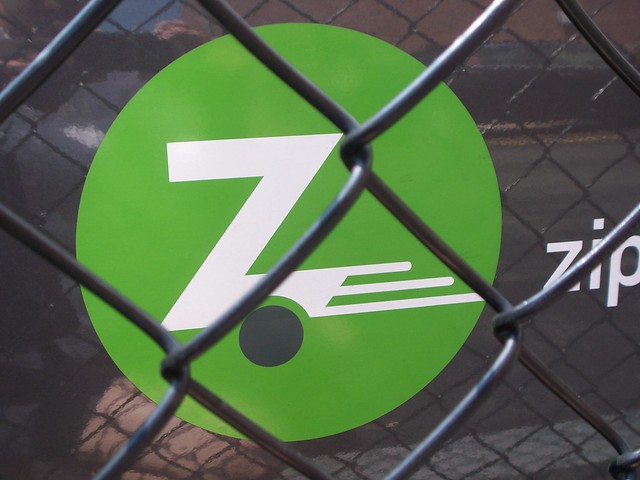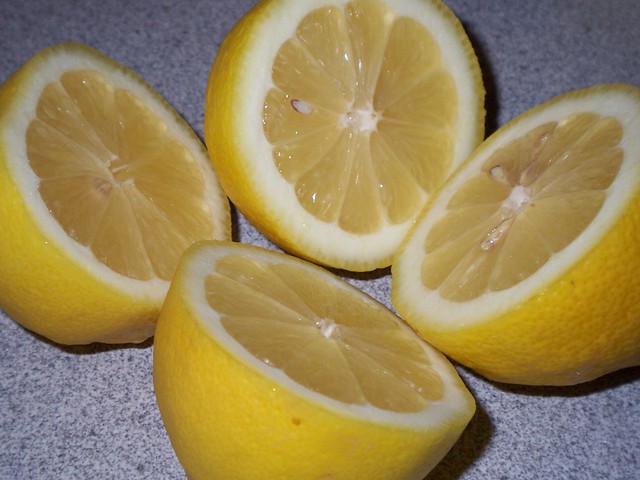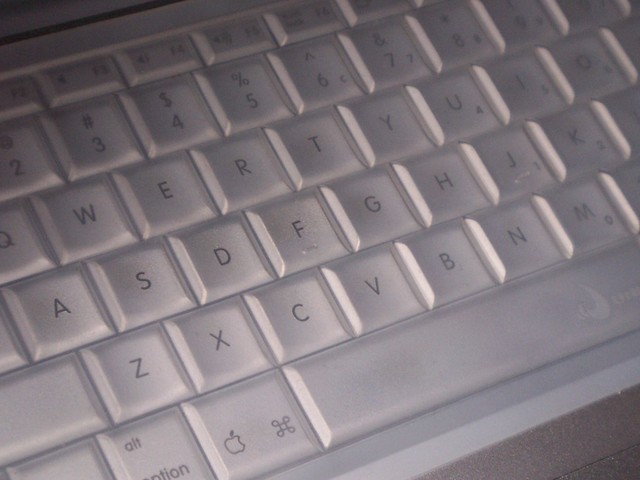After our friend Jess looked over the blog, she asked us "what are the top five things you do to be green?" Ian and I started rattling a few things off, but I realized our list is a good resource to have here.
Please know, the last thing we want is to send you on a guilt trip. These are just the things we've managed to fit in our lives. While reading creation care books, I've felt bad about using a clothes dryer and tossing food scraps. But the same situation that prevents us from line drying clothes and composting allows us to live car-less, something green folks in rural areas can't do. Just remember to reduce, reuse, recycle (in that order). Live simply: consume less, reuse whenever possible, and then recycle what's left.
Sell the car. We picked our apartment based on proximity to the T, and have a ZipCar membership for when we do need wheels (ZipCar even offers hybrids).
Walk and bike whenever possible. Plus it's good (and free) exercise.
Fly only when necessary. We try to use the train/bus for closer destinations.
Choose organic. We use Boston Organics for produce and choose the organic option when feasible. While we aren't 100% organic, 50% is better than 0%.
Shop at Trader Joe's. All TJ label products have no artificial flavors, colors, preservatives, genetically modified ingredients, MSG, or trans fats.
Don't pre-boil pasta.
Cook at home from scratch. We're busy, but it's amazing how little time it takes when you plan ahead. Speaking of which...
Meal plan to reduce waste.
Pack a lunch in a reusable container. Leftovers make exciting lunches. And we've replaced our plastic containers with glass/ceramic (viva Mason jars!).
Use cloth napkins. Plus it feels fancy.
Say no to bottled water. Necessary in some instances, but not many. Not at home (use a water filter). Often not while traveling. If it's not safe to drink the local water, refill from larger containers. Bring a water bottle (we have SIGGS). And TSA tip: bring it through security empty, then fill it on the other side.
Bring your own mug. Bonus: you might get a discount. I stash a reusable cup sleeve in my purse for when we go to Starbucks on a whim (i.e. without mugs).
Skip the fancy gadgets. Making a smoothie? Grab the blender. Grinding pepper? Exercise those arms.
Drink organic, fair trade coffee. (or tea. or hot chocolate... you get the idea.)
Eat more fruits and veggies. Producing plants requires less energy than producing meat.
Support variety. Monocultures are bad. Buy heirloom tomatoes and purple carrots. Good for the environment, fun to eat.
Include local and seasonal produce in your diet. Enjoy the mango, but toss in local apples too. In season tastes better anyway.
Choose healthy, happy meat. It's not just a feel-good choice; it contains more nutrients and is better for the environment. Bonus if it's a regional breed.
Wash and reuse plastic zip lock bags. We also have cloth versions for things like bringing cereal and sandwiches to work, so we cut down our use even more.
Grow things. We don't have outdoor space, but we do have potted herbs.
Compost. We helped Ian's family start and it's easy outdoors. We haven't found a good indoor compost system, but might have found a good alternative for Boston apartment dwellers.
Shave old-school. Higher upfront costs, but you come out ahead and create much less waste—just metal blades, no plastic. Ian uses a 4:1 ratio of olive and castor oil as preshave oil: cheap and natural.
Skip the antibacterial. Necessary in some situations (the hospital, for example) but in most cases regular soap and water do the job.
Avoid hair products. I air dry my hair and don't use traditional hair products often — I opt for a cut that allows me to style my hair without these tools.
Use Dr. Bonner's soap, available in bar and liquid form (I hear it's also great for cleaning).
Transition to eco-friendly personal care products. Every body is different, so it takes time to find what works. But every little bit helps!
Use eco-friendly cleaners. Vinegar, baking soda, lemon juice, and hydrogen peroxide go far, and there are plenty of green options on the market to fill in the gaps. (I like Method and Better Life.)
Lose the disposables. We have a big basket of rags/old towels we use for cleaning. We can wash and reuse until they're worn out.
Swiffer without the Swiffer. Spray eco-friendly cleaner. Dance around with a microfiber floor mop. Toss the cloth in the laundry. Done.
Use eco-friendly laundry detergent (I like Method) with warm or cold water. Vinegar gets odors (and static) out. We ran a load of mildew-y towels with vinegar in place of soap, then again with detergent. They smell like new.
Avoid buying dry-clean only items. (Unless it says "dry clean only" you can probably hand wash it.) For unavoidable drycleaning (like Ian's suits for business meetings) we use a local organic dry cleaner. It's better than regular dry cleaning, but still has bad chemicals. The best options are wet cleaning (highly specialized wash that won't damage) and CO2 (liquefies existing CO2 to use as cleaning agent). Unfortunately those two options aren't accessible for us.
Turn off the dishwasher's heat dry setting, and use time delay to wash overnight. This pulls energy from the grid at off peak hours, and dishes still air dry by morning.
Pour boiling water down the drains once a week to prevent buildup. If it does get clogged, try plunging and/or snaking it.
Be a conscientious consumer. Research the companies you support. (GoodGuide is fast + helpful. They even have an app!)
Skip plastic when possible. Wood, glass, and ceramic look better anyway.
Invest in things that last. Instead of cheap rainboots that crack every year, I saved up for L.L. Bean boots. (No fair tossing before they're worn out).
Buy in bulk. I get refills for things like soap and shower spray.
Choose minimal/recyclable packaging. (plastic < cardboard < 0)
Use the library — it's a community reuse program.
Fix it, don't toss it. My cookie dough scoop stopped working, but after a few minutes with a pair of pliers it's as good as new.
Use newspaper or brown paper bags to wrap gifts.
Carry reusable shopping bags. I'm a big fan of my Envirosax. I can keep a couple in my purse at all times, so I'm never at the grocery store without them.
Invest in rechargeable batteries for items you use often.
Sign up for green energy options. For $1 a month, our electricity is 100% wind energy (average family increase is $7). No green options? Suggest it.
Unplug things. Many electric items use power even when off. Our TV (big offender) is plugged into a circuit with a switch. Power strips with a kill switch also make it easy.
Use the internet. Online bill pay and shopping save paper and transportation. And when it's time to get a new computer, look for one that is environmentally conscious. One of many reasons why we love our MacBook Pro. Apple, you are welcome to send free products for that shameless plug.
GIVE. When people can't meet their own needs, the environment takes a back burner. How can you worry about saving lions when said lions are eating your only source of income? How can you say no to a job at a chemical plant when your family is starving? Helping disadvantaged communities allows them to choose things that aren't harmful to their own environments (and therefore harmful to themselves). And keep in mind that as a wealthy country, we can afford to outsource our waste. Our poor environmental choices don't pollute our own air; instead, those choices pollute someone else's air.
resources we use.
GoodGuide: health + green + social ratings for countless products
A Rocha: Christian environmentalists
Blessed Earth Tip Sheets (thanks Danielle!)
Earth Lab: track your carbon footprint
the Hoosier Homestead
100 Ways to Save the World by Johan Tell
Serve God Save the Planet by J. Matthew Sleeth, M.D.
Green Revolution: Coming Together to Care for Creation by Ben Lowe
Animal, Vegetable, Miracle: a Year of Food Life by Barbara Kingsolver
Read all our posts about living green.






